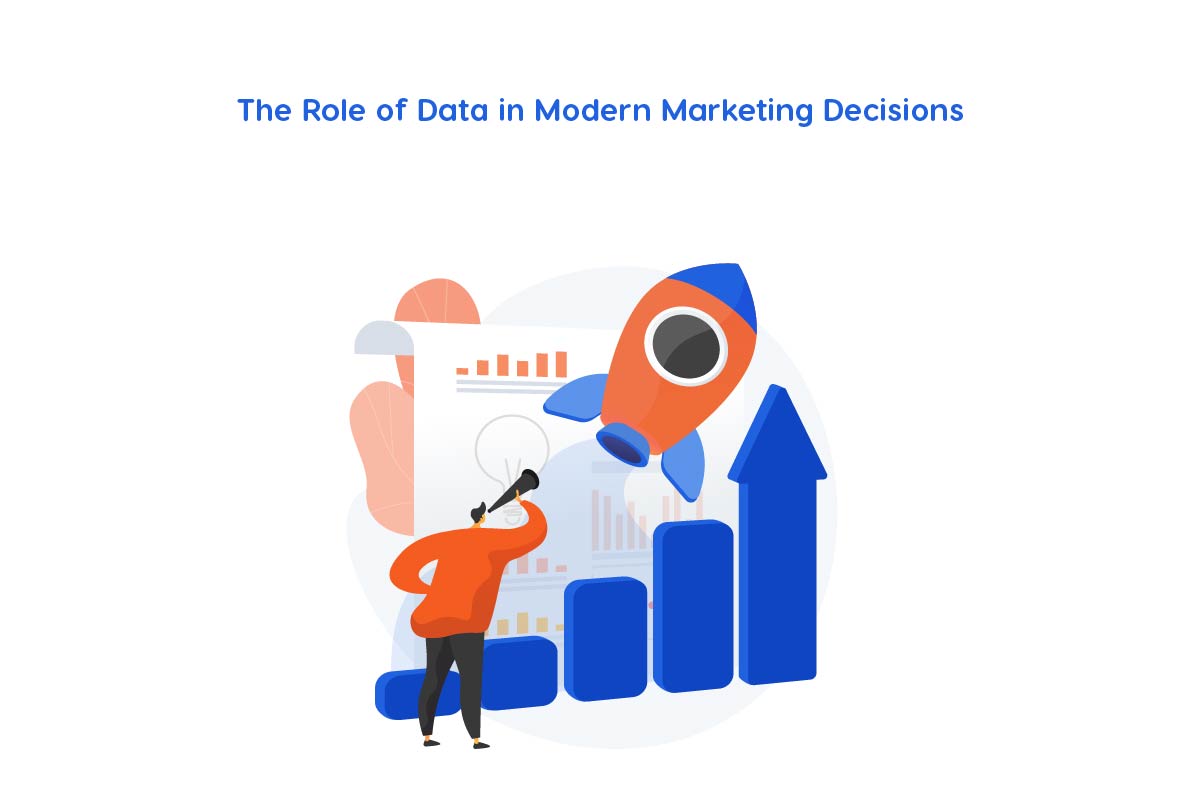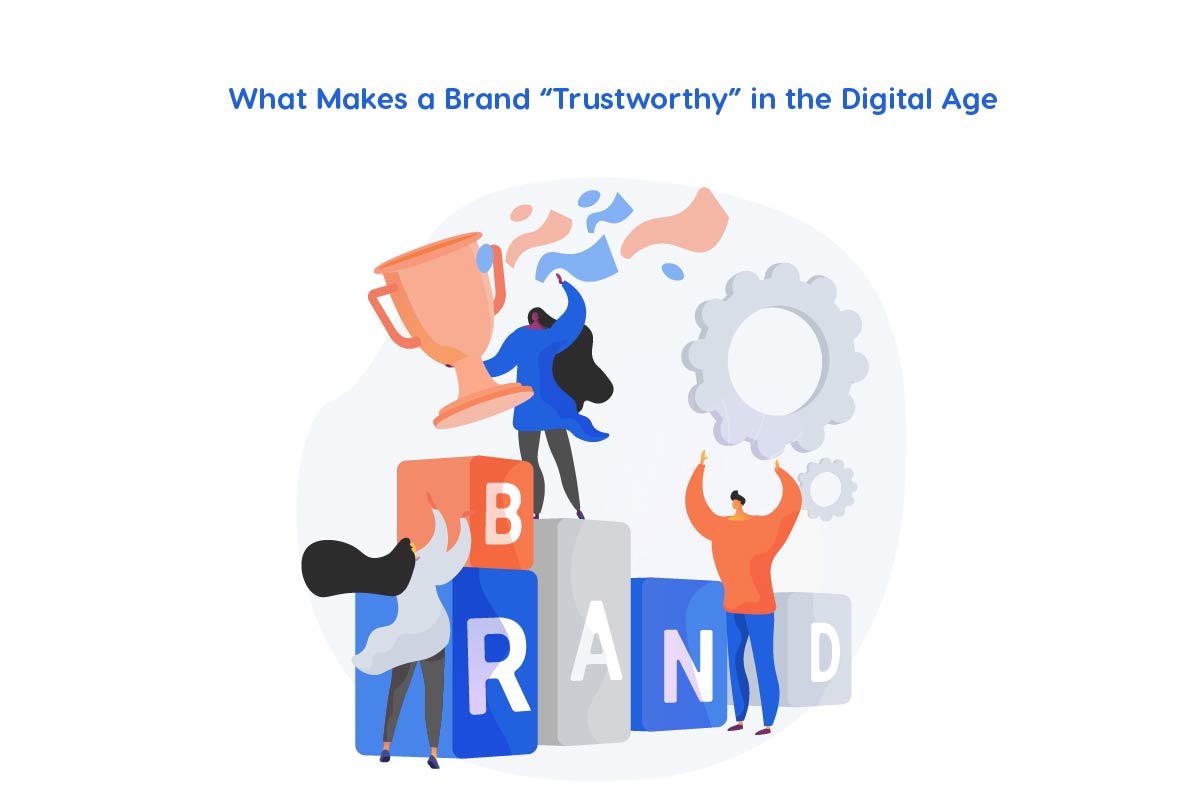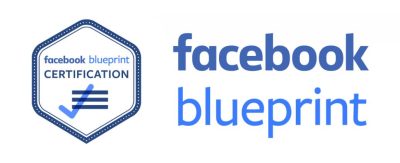The digital world is never an easy place to predict. We have witnessed over the years that technology has totally transformed the way business and individuals interact with one another. Initially, the primary method of sharing information on products and services was via websites and traditional advertising by companies. Then, such social media platforms as Facebook, Instagram, YouTube, and Tik Tok came into the limelight and become a good advertising, customer engagement and brand building platform. The digital marketing has become one of the most significant tools of success because these platforms enabled the companies to reach millions of people instantly.
However, now we are entering the next phase of the internet. That is Metaverse. It is not a new application or a new social network, it is a new world where individuals may live, play, shop and communicate in a virtual reality. The Metaverse is a combination of such technologies as virtual reality (VR), augmented reality (AR), games and even cryptocurrency/NFTs to form a common digital universe. It is revolutionary to marketers because it no longer involves presenting advertisements on a screen alone but an experience that is immersive and customers are prompted to feel like they are in the world of the brand. That is why a lot of professionals think that the Metaverse marketing may be the next big thing. It is also a more promising experience and opportunity to be more creative and engage a younger generation that is more tech savvy and spends much of their time online.
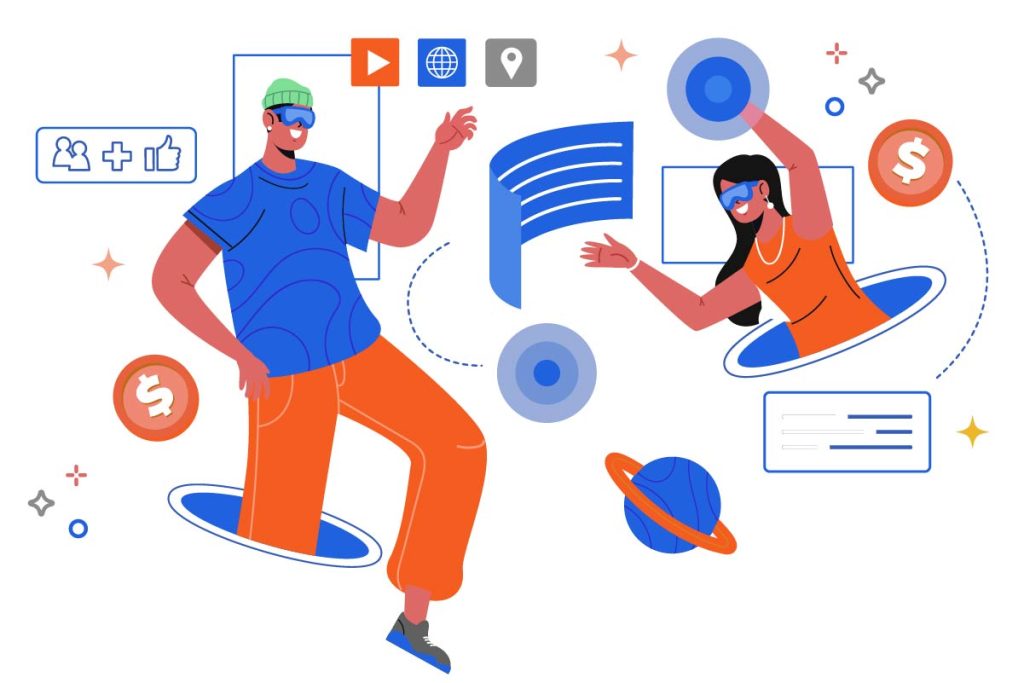
What is the Metaverse?
Metaverse may sound like a complex term. In simple English, it can be defined as a common digital universe. Here individuals can live, work, shop and socialize with the help of their digital selves also referred to as avatars. Think of it as the next internet but rather than scrolling your pages and watching material through a screen. You can literally enter into the screen and see everything in 3D.
It is made possible by the Metaverse which unites a wide variety of technologies:
Virtual Reality (VR):
With special headsets, you can be immersed in a computer generated world and everything in virtual reality is real.
Augmented Reality (AR):
Digital content, such as three dimensional models or graphics, is overlaid on the real world around you via your smart devices such as smartphones or smart glasses.
Blockchain and NFTs:
These enable individuals to have virtual goods such as avatars clothes, art, or even digital real estate.
Gaming Platforms:
Already games such as Roblox, Fortnite and Minecraft have the first forms of the Metaverse where individuals can meet, play and create.
Who is Building the Metaverse?
Already multinational corporations are putting billions into the Metaverse:
| Company/Platform | What They are Doing in the Metaverse |
|---|---|
| Facebook (Meta) | Mark Zuckerberg rebranded Facebook as Meta to show his commitment to building an interconnected digital world. |
| Microsoft | Developing digital workspaces in the Metaverse where office meetings, training, and team collaboration can happen in a 3D environment. |
| Roblox & Fortnite | Early pioneers of the Metaverse, where millions of people spend hours socializing, gaming, and even shopping in their virtual worlds. |
| Decentraland & Sandbox | Creating full digital economies where users can buy land, open virtual stores, organize events and trade digital assets. |
What Is the Point of the Metaverse?
What is Metaverse Marketing?
Metaverse marketing means promoting products, services or brands inside these digital worlds. Instead of just showing ads on a website or a mobile app, businesses can create immersive experiences for their audience. Read more about: Virtual influencers
For instance:
- Nike built a virtual world in Roblox where users can try sneakers and play games.
- Gucci launched a virtual handbag in Roblox that sold for more than the real version.
- Samsung created a digital showroom in Decentraland for product launches.
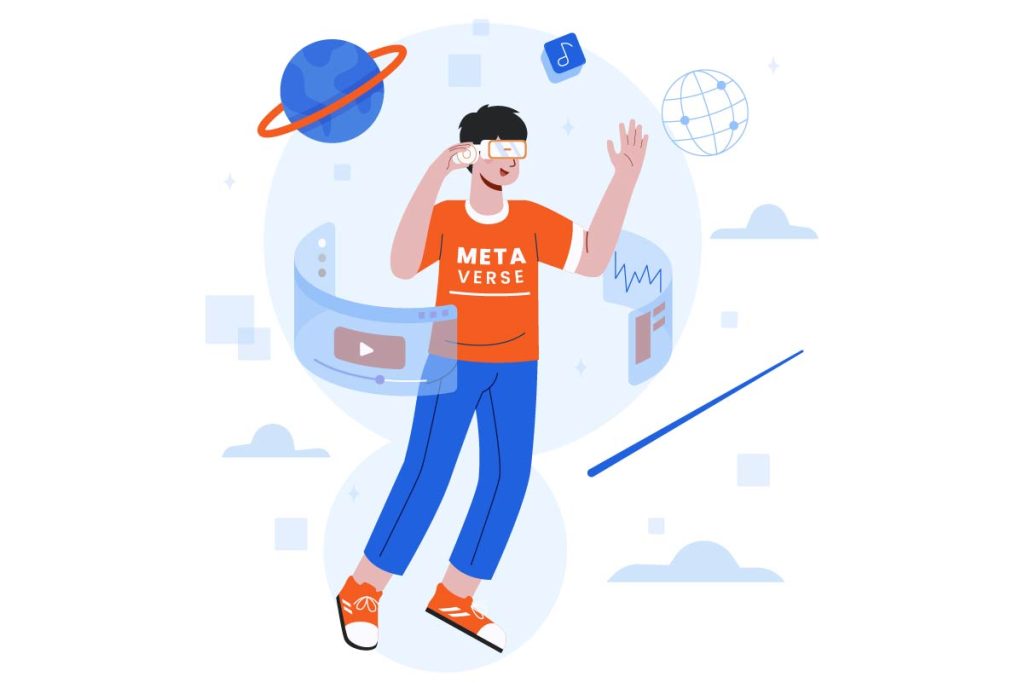
Why Are Brands Moving Towards Metaverse Marketing?
More Engagement
In the Metaverse, customers don’t just see or scroll past ads. They actively experience them. For example, instead of watching a commercial about a car, you can step into a virtual showroom, sit in the car and even test drive it. This type of engagement builds much stronger emotional connections with the brand.
Young Audience Love It
The Gen Z and Millennials are already highly active in gaming and digital spaces like Roblox, Fortnite, and VR chat platforms. The Metaverse allows brands to meet young consumers where they already spend time, making the marketing feel natural rather than forced.
Unlimited Creativity
The real world has limits. Budget, physics and logistics. But in the Metaverse, brands can create impossible experiences. A floating fashion show on the moon, an underwater concert, or a digital theme park for their fans. Creativity has no boundaries here.
Personalized Experiences
The Metaverse allows businesses to design tailored experiences for every visitor. For example, a clothing brand could suggest outfits based on the user’s avatar style. A car company could let you customize and test your dream car instantly.
Early Mover Advantage
Since the Metaverse is still new, brands that experiment early get more attention and recognition. Just like companies that embraced social media early became industry leaders, those who step into the Metaverse now may stay ahead of competition in the long run.
Benefits of Metaverse Marketing
Metaverse marketing means promoting products, services, or brands inside these digital worlds. Instead of just showing ads on a website or a mobile app, businesses can create immersive experiences for their audience.
Challenges of Metaverse Marketing
While the opportunities are exciting, there are also challenges:
⚠️ High Costs: Creating virtual worlds and experiences requires money and technology.
⚠️ Technology Limitations: Not everyone owns VR glasses or high-speed internet.
⚠️ Uncertain Future: The Metaverse is still developing, it’s unclear how fast it will grow.
⚠️ Privacy Concerns: Just like social media, data protection will be a major issue.
Is the Metaverse Really the Next Big Thing?
For businesses, it is important to start exploring early. Even if not every brand needs to jump in right now, keeping an eye on the trend will help them stay ready for the future.
Final Thoughts
Metaverse marketing is not just science fiction anymore. It’s becoming a reality. With immersive experiences, digital products, and new ways to connect with customers, it has the potential to reshape the future of marketing. However, challenges like cost, access, and privacy still need to be solved.
So, is Metaverse marketing the next big thing? Most likely, yes. But it’s a journey that will take time. Brands that adapt early will have a big advantage when the Metaverse becomes mainstream.

